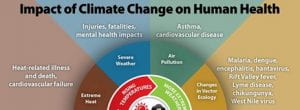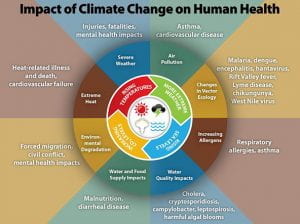
 I recently finished grading presentations by our first-year medical students in their Clinical Integration Sessions. As you might assume any good librarian might do, I reviewed their references and made sure they correctly formatted their lists. I also looked for other skills built into their curriculum, skills like interactivity and timing.
I recently finished grading presentations by our first-year medical students in their Clinical Integration Sessions. As you might assume any good librarian might do, I reviewed their references and made sure they correctly formatted their lists. I also looked for other skills built into their curriculum, skills like interactivity and timing.
One of the first skills they learn in CIS, and one that is reinforced in each round of student presentations, is their introduction. As presenters, they need to tell me - their audience - who they are, what they’re talking about, and why I need to listen up.
The “why I need to listen up” piece is critical. It’s how they get my attention and keep it, for the whole five minutes they are presenting.
 If they need inspiration on how to do this effectively, they might look to Dr. Neelu Tummala, a clinical physician with GWU’s MFA and a member of the inaugural cohort of Public Voices Fellowship on the Climate Crisis at the Yale Program on Climate Communication. Her class includes political activists, researchers, and consultants. Many of her classmates describe an interest in advancing human health, however, she is the only doctor in the group.
If they need inspiration on how to do this effectively, they might look to Dr. Neelu Tummala, a clinical physician with GWU’s MFA and a member of the inaugural cohort of Public Voices Fellowship on the Climate Crisis at the Yale Program on Climate Communication. Her class includes political activists, researchers, and consultants. Many of her classmates describe an interest in advancing human health, however, she is the only doctor in the group.
When I asked about the connection she sees between her work in medicine and climate change, Dr. Tummala told me that her medical lens helps her communicate to broader audiences about climate change. “No one,” she says, “is immune from the health effects of climate change.” By relating a grand problem to personal experience, she can hook in an audience that might otherwise not have “listened up”.
Several of my CIS students have started their presentations with case studies. They’ve shown radiographic images, told stories, and introduced scenarios. Dr. Tummala often does the same thing when presenting information - she provides examples of patients seen in Emergency Rooms and clinics, patients who have been affected by climate change and other environmental issues. This concretization of the abstract, this story-telling, captures our interest.
And it is not only the story-telling that is important. It is the basic science behind these stories, the mechanistic reasoning and research that explains why climate change impacts our health. Dr. Tummala keeps up with the latest literature in NEJM and The Lancet and stays abreast of environmental reporting with The Guardian. By following conversations in both scientific research and the news media, Dr. Tummala is able to evaluate sweeping claims and participate in the conversation.
A year-and-a-half in to the GWU community, Dr. Tummala is engaging in these important conversations at the local level. Though she acknowledges it was initially a slow process, she has now found other colleagues interested in addressing climate and health, through whom she has engaged in clinical research and teaching, including Dr. Hana Akselrod, Assistant Professor of Medicine, GW SMHS and Dr. Rachel Harold, Infectious Disease Fellow, GW SMHS. In addition, she is also planning on working with collaborators across traditional disciplinary boundaries including Dr. Susan Anenberg, Associate Professor, GWSPH. Their grant proposal, “Advancing GW Cross-Disciplinary Collaboration in Climate Change and Public Health Research”, written by Drs. Anenberg and Akselrod, was recently awarded monies from the GWU Cross-Disciplinary Research Fund.
And what is one of the keys to getting a grant? Writing a good proposal, which should tell your potential funders who you are, what you’re going to research, and why they need to listen up.
Interested in Learning more about Climate Change and Medicine? Check out these resources


